#King Henry VII
Text
88 notes
·
View notes
Note
Yandere king Henry VII (king henry viii father) and Favorite Mistress who the one who give birth to king henry viii and not Elizabeth of York.

I think the reader meets King Henry Vll shortly after the birth of Princess Margaret. Henry falls in love the moment he sees her. He had never felt such feelings against Elizabeth. The reader remains indifferent to the King's courtship. She says she doesn't want to be a nest destroyer. But Henry does not give up on his love. At first he tries to get your readership through the settlement. But when that doesn't work, he doesn't hesitate to threaten and get his hands dirty. The reader is forced to accept the King. Henry makes your reader his legitimate mistress. From their union, they have healthy children named Henry 8, Isabella, Mary and Katherine. Henry makes famous all the children born of the reader.He is protective of them. All children born of the reader will be legitimate heirs. No one can harm or disrespect their family. After the death of Prince Arthur, Henry becomes the Crown Prince.
#white princess#yandere tudors characters#yandere the tudors#yandere tudors#house of tudor#the tudors#king henry vii#king henry vii x reader#yandere king henry vii#yandere king henry vii x reader#yandere king
125 notes
·
View notes
Text
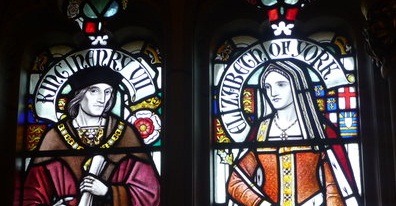
Henry VII & Elizabeth of York - The beginning of the Tudor dynasty
#King Henry VII#Elizabeth of York#House of Tudor#monarchy#Henry Tudor#Wars of the Roses#stained glass#UK history
91 notes
·
View notes
Text


Henry VII and Elizabeth of York by Richard Burchett
#henry vii#henry tudor#king Henry vii#elizabeth of york#Queen Elizabeth of York#art#victorian period#victorian art#the tudors#tudor history#english history#tudor era#art history#history of art#Victorian#tudor#king of england#queen of england#wars of the roses#plantagenets#house of york#house of lancaster#house of tudor#Plantagenet dynasty
106 notes
·
View notes
Text

And now, we will rule.
You will always be by my side? –King Henry VII
Always.
8 notes
·
View notes
Text
Secure The Throne|
King Henry VII x Reader
A/N: I’m disappointed that this is my first post on Tumblr. I wrote this after I had the most random dream about King Henry VII, specifically played by Mat. I thought that it was funny so hopefully someone can appreciate it.
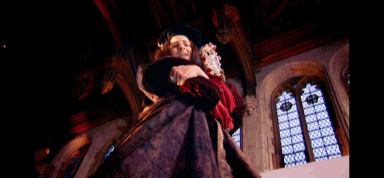
“Join our family seat to make my rules secure,” Henry says. We are talking about how he has not yet found a wife to give an heir to the throne.
“Henry, are you asking me to marry you?” I ask, shocked. I did not expect this from the conversation. I was just trying to give him advice. Do not get me wrong, I am not opposed to marrying Henry, though the prospect of being queen makes me nervous. On top of that, Henry and I are not courting. Is he asking me as a last resort to secure the throne and give him an heir, or is this something deeper?
“Yes. You may not have realized, but I have loved you for a long time. I do hope you feel the same. So, will you marry me?” Henry seems so genuine. I know I want to say yes, but I am frightened.
“Do you think that is a good idea?” I ask.
“I do not care if it is a good idea, as long as you are my queen.”
“Then yes, of course, I will marry you,” I say with a broad smile. Henry has his lips on mine as soon as I finish my sentence. I gasp, as I was not expecting it, but kiss back. Henry puts his hands on my face to deep in the kiss, pushing my back against the door. I put my hands in his long hair, slightly pulling at it before pulling away from the kiss.
“Would people not be mad at the fact that you-the King-is kissing me, when we are only newly betrothed?”
He grins smugly, “I’m the king; I can do whatever I please. Plus, I would not describe this as just kissing.”
12 notes
·
View notes
Text
Idk if anyone here is into Shakespeare or any of his works but I thought I’d share my Shakespeare project that I worked on for my English class, I focused on the women in Richard III and how Richard’s manipulation tactics hurt each woman. I have symbolization in each piece so I can go into tnay if anyone would like :)
(Here are the pictures with a very bad signature watermark that I just did on my phone)

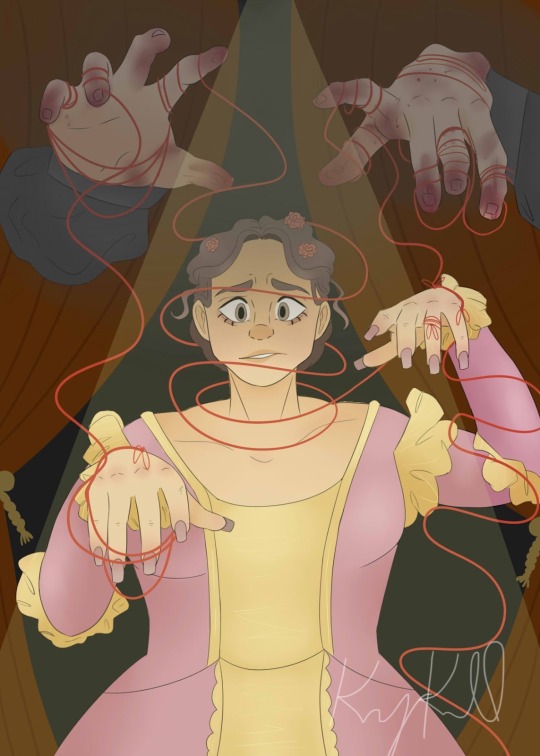

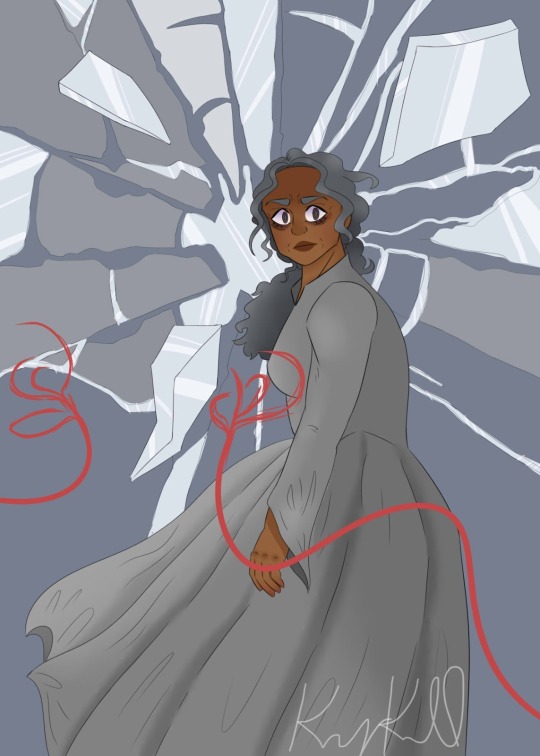
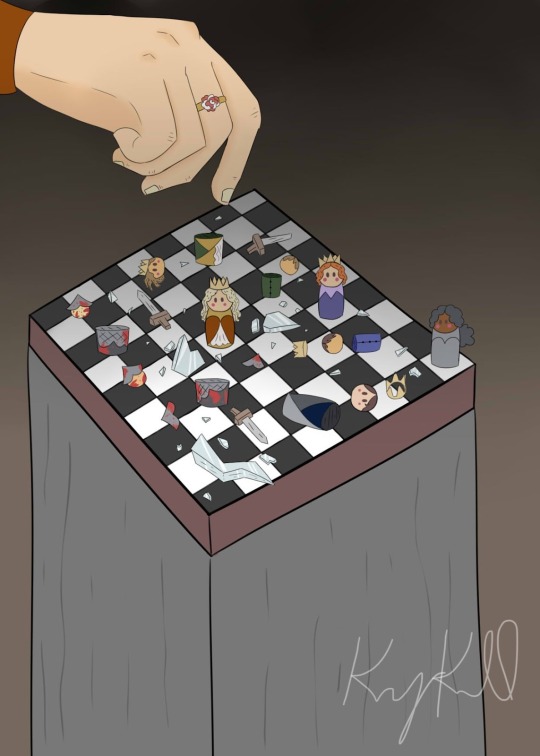
#shakespeare#william shakespeare#art#difital art#art project#English#English major#English project#college#anne neville#queen elizabeth#margaret of anjou#Elizabeth queen of York#house of york#house of lancaster#the tudors#king Henry vii#my art#my project#literature#english literature
33 notes
·
View notes
Photo

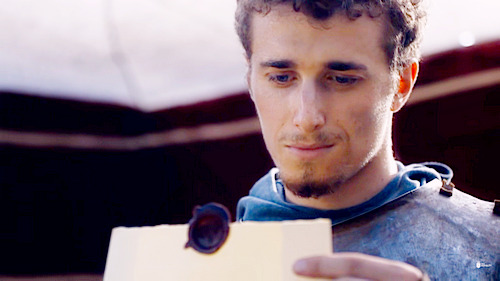




Gabriel Zaharia as Henry Tudor, Earl of Richmond later Henry VII, King of England in Channel 5′s Britain’s Bloody Crown (2016)
#britain's bloody crown#documentaryedit#perioddramaedit#periodedit#gabriel zaharia#Henry Tudor#henry vii#King Henry VII#Henry VII of England#king henry vii king of england#henry vii king of england#documentary: britain's bloody crown#original edit#edit
95 notes
·
View notes
Text

“When the kynge her son was crowned in all that grete tryumphe and glorye, she wept marvelously’, for even when she experienced great joy, life had taught Margaret to be wary: ‘she let not to saye, that some adversyte would follow’”
Happy coronation day, Henry!
#henry tudor#henry vii#king henry vii#house of Tudor#tudor dynasty#dean charles chapman#matteo martari#tudor edit#bishop fisher#margaret Beaufort
24 notes
·
View notes
Text
A Timeworn Scroll Reveals King Henry VII’s Interests in New World Colonization
By Ashley Cowie, 6 October 2018

Rolled up parchment with information of payment to William Weston from Henry VII. (Source: The National Archives, UK)
In AD 1499, England launched its very first English-led expedition to "Terra Nova” (New World) and now researchers studying a 16th century scroll have found King Henry VII awarded William Weston, one the explorers, with a handsome paycheck.
While the payment of 30 British pounds sterling could hardly be called a king’s ransom, at that time, this was a considerable sum of money; equivalent of a laborers salary for six years, said researchers in a their paper, which was published online on October 2 in the journal Historical Research.
The information was discovered on a huge parchment dating back more than 500 years and ultraviolet light was required to reveal the hidden text said study co-researcher Evan Jones, a senior lecturer in economic and social history at the University of Bristol in a report in Live Science .
Early Transatlantic Rumors
In 2009, the University of Bristol published Jones paper titled The lost voyage: First English-led expedition to North America in which a “long lost letter” written by King Henry VII was addressed to Weston as he “was preparing for an expedition to the new found land.”
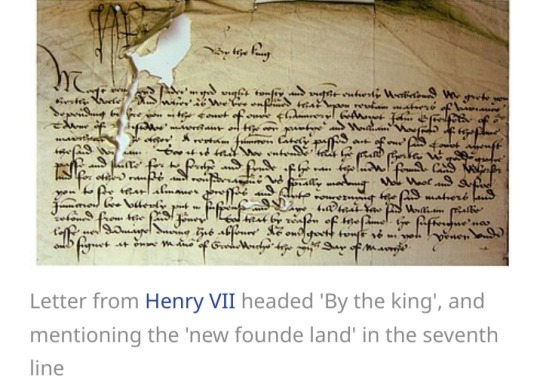
The king was excited and in support of Weston because in AD 1497 and 1498, the Venetian explorer John Cabot had successfully sailed the Atlantic having set off from the southern English port of Bristol. But it seems Weston was preparing a British-led expedition.
“The Cabot Project” is an international project aimed at researching the late 15th and early 16th centuries Transatlantic voyages from Bristol.
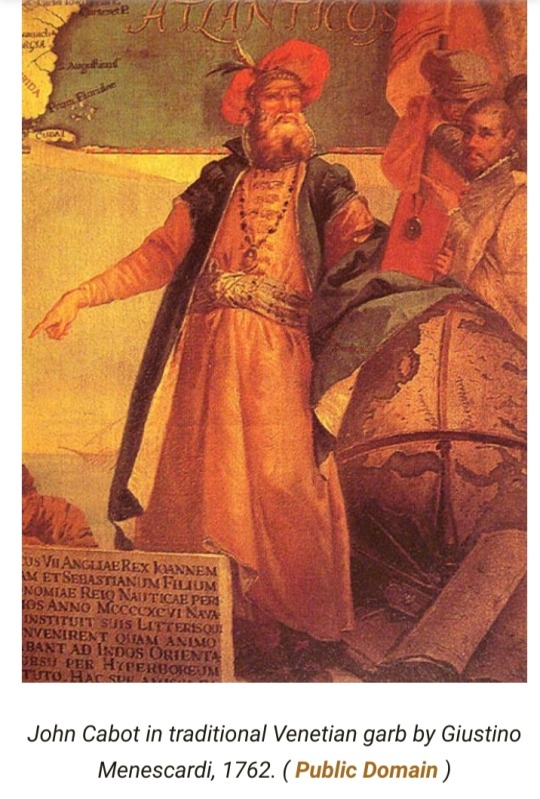
Margaret Condon of the University of Bristol, who is part of the Cabot Project, researched endless tax records gathering data about the oceanic adventurers traveling to and from North America.
These were “written on huge parchment rolls, created from the skin of more than 200 sheep” according to the Live Science article, and each segment on the roll measured “6.5 feet (2 meters) long.”
In the University of Bristol’s statement about the discoveries, Condon said that the rolls were "beasts to deal with, but also precious and irreplaceable documents.”
Handling them, she said, “sometimes feels like you're wrestling, very gently, with an obstreperous [boisterous] baby elephant!”

Returning to the main discovery, King Henry VII rewarded Weston in January 1498 after they met.
Researchers believe “it appears that Weston was likely one of the unnamed 'great seamen' from Bristol whom Italian diplomats wrote about during the winter of 1497 to 1498” while describing the Bristol explorers who joined Cabot on his two 1490’s expeditions.

Nobody is quite sure how Cabot's last 1498 expedition turned out but perhaps its ill fate inspired King Henry VII to send his expedition the following year, led by one of Cabot's deputies, the researchers speculated.
Further evidence gathered by members of the Cabot Project revealed that "Weston was a bit of a gambler, but perhaps you had to be, to risk your life on such a dangerous voyage into unknown seas.”
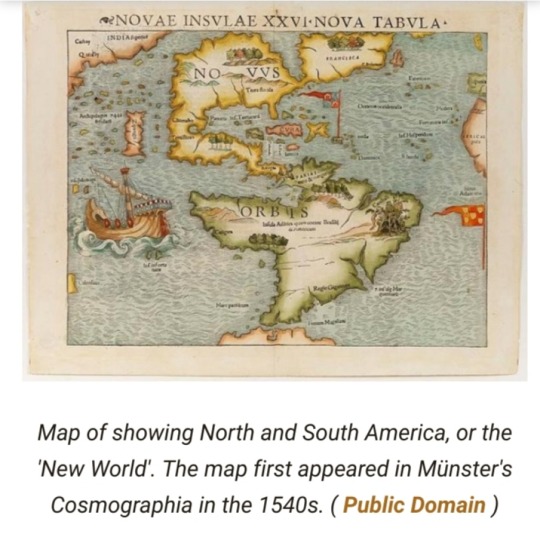
On another level of this fascinating story, the new study also confirmed two extraordinary claims made by Alwyn Ruddock, a deceased historian from the University of London who, having studied the early English voyages to the Americas for over 4 decades, claimed that Cabot had explored most of the North American continent’s east coast by AD 1500.
Ruddock never published her discoveries and in a bizarre act, upon her death in 2005, she ordered that all her notes were destroyed, and so they were.
These new findings support the two extraordinary claims made by Ruddock who spent over 40 years researching England's first voyages to North America, and although she never published any of her work, she did submit a book synopsis and this was shared with Jones.
Ruddock also claimed that a band of Italian friars had sailed with Cabot on his AD 1498 expedition who went on to establish “the first European Christian colony and church in North America” according to an article in Newsweek.
Offering reason as to why the king rewarded Weston, she implied that Weston moved northwards up the Labrador coast searching for the North West passage around the continent.
The authors of the latest study suggest it was for this specific reason that Weston was rewarded by Henry VII.

15 notes
·
View notes
Photo
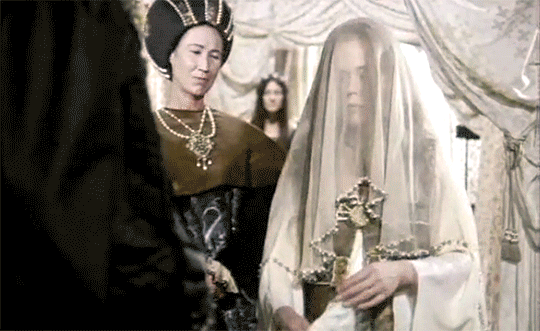
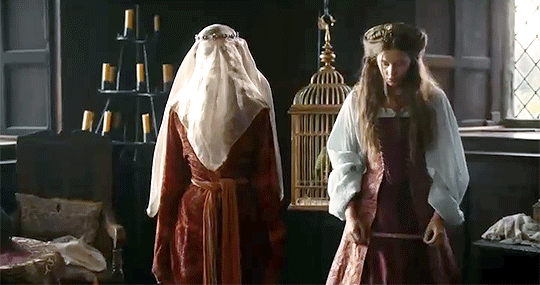
#The Six Wives of Henry VIII#Spanish Princess#King Henry VII#Princess Catherine of Aragon#Queen Catherine of Aragon#SPS1E1
5 notes
·
View notes
Note
Yandere king Henry VII headcannon?
(King Henry Viii father)

~ Henry falls head over heels in love the moment he sees you.
~ Nobody can prevent him from making you his wife or mistress.
~ He will get you through peace or war.
~ It will make you love it. He's cheerful, friendly, and intelligent, which makes you fall in love with him.
~ It will allow you to live in the same Palace with him or in a mansion close to his Palace.
~ It never spares any expense for you. All you have to do is ask.
~ Will not allow Elizabeth or anyone else to harm or disrespect you.
~ He will make every child born of you a legitimate heir. No one can stop him from doing that.
~ It will spoil you financially. Clothes, jewellery, whatever you need for your hobbies are all yours.
~ He takes it with him to participate in tournaments and big celebrations.
~ He doesn't even spend as much time with Elizabeth as you do. He devotes most of his time to you and your children.
~ It will allow you to engage in politics if you wish. On the other hand, he asks your opinion on many issues.
~ Even his mother tries to get along with you. Because she knows very well what her son will do if he harms your single hair.
~ Your and the children's health is very important to Henry. It allows the best doctors to serve you.
~ He is very loyal to you. If you are his first wife, he will not be with any woman other than you. However, if Elizabeth is his first wife, he stops being with you after he starts living with you.
#yandere king henry vii x reader#yandere king henry vii#king henry vii#yandere tudors characters#yandere the tudors#yandere tudors#house of tudor#the tudors#yandere the spanish princess
81 notes
·
View notes
Text
The recent development of studies of the itineraries of English monarchs has enhanced understanding of a range of aspects of their kingship, as well as of the road and river transport network. In the case of Henry VII, study of the king’s movements allows for a better understanding of his preferences between his residences in and near his capital, and the reasons for these choices. It also sheds light on a particularly controversial episode, the alleged confession by Sir James Tyrell in the Tower of London in 1502 of responsibility for the murders of the ‘princes in the Tower’.
#uni life#to read later#british royal family#king henry vii#princes in the tower#sir james tyrell#sixteenth century
0 notes
Text
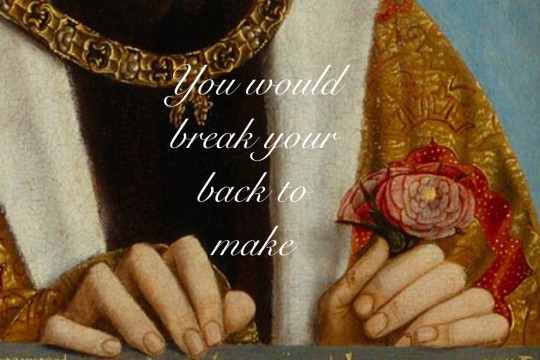
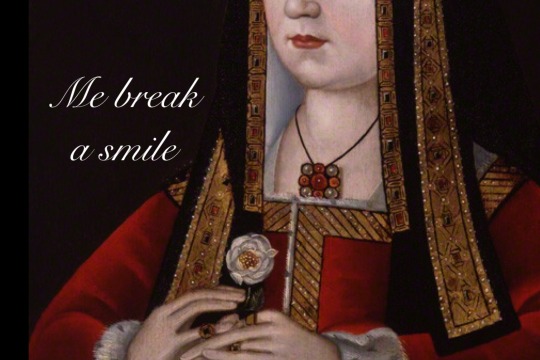
“Uh oh, I’m falling in love…” Labyrinth by Taylor Swift// Henry VII and Elizabeth of York January 18th, 1486: the wedding of Henry VII and Elizabeth of York
#henry vii#king Henry VII#the tudors#henry tudor#tudor history#elizabeth of york#english history#tudor era#art#tudor portraits#tudor period#tudor dynasty#tudor rose#house of tudor#york#lancaster#wars of the roses#taylor swift#labyrinth#midnights#lyrics#15th century#16th century#16th century art#15th century art#sixteenth century#fifteenth century#renaissance history#renaissance art#medieval period
28 notes
·
View notes
Text
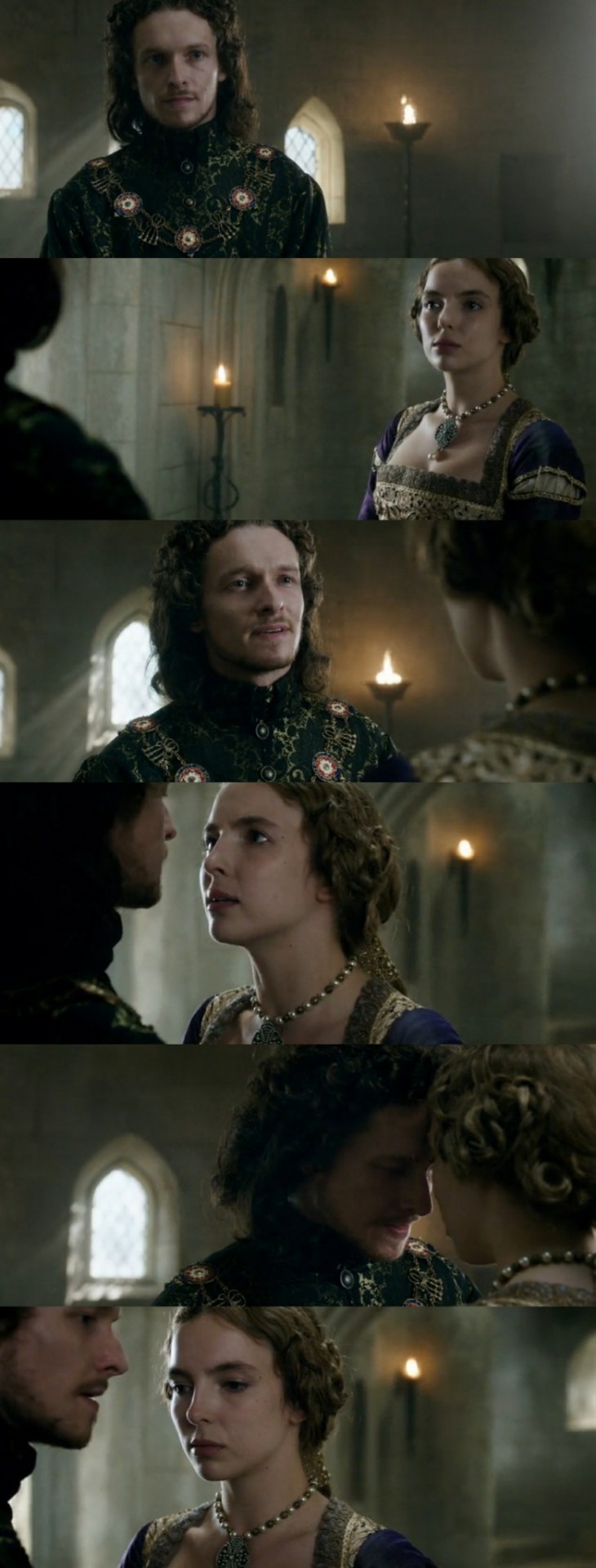
Lies are all my mother has, Henry. No one will believe her. England loves you. We have had seven years of peace.
And you? Do you love me?–King Henry VII
You are God's King. You are England's King. And you are my King.
I will sleep alone tonight.–King Henry VII
2 notes
·
View notes
Text
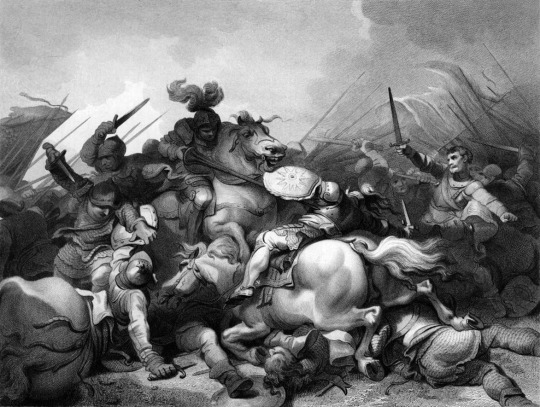
King Richard III Was Defeated and Killed at the Battle of Bosworth Field, Thus Ushering in the House of Tudor. August 22, 1485
Image: Battle of Bosworth, as depicted by Philip James de Loutherbourg (1740–1812) (Wikimedia Commons.)
On this day in history, in the last battle of the War of the Roses, King Richard III was defeated and killed at the Battle of Bosworth Field by Henry Tudor, the Earl of Richmond. After the battle, the royal crown, which Richard wore into action, was plucked out of a bush and placed on Henry's head. His crowning as King Henry VII initiated the rule of the Tudor dynasty over England, one that would last until Queen Elizabeth died in 1603.
History Daily: 365 Fascinating Happenings Volume 1 & Volume 2 - August 22, 1485
Created of dynastic conflicts within the English Houses of York and Lancaster, the Wars of the Roses began in 1455 when Richard, Duke of York, clashed with Lancasterian forces loyal to the mentally unstable King Henry VI. Fighting continued over the next five years, with both sides seeing periods of ascendancy. Following the death of Richard in 1460, the leadership of the Yorkist cause passed to his son Edward, Earl of March. A year later, with the aid of Richard Neville, Earl of Warwick, he was crowned Edward IV and secured the throne with a victory at the Battle of Towton.
When Edward IV died unexpectedly in 1483, his brother, Richard of Gloucester, assumed the position of Lord Protector for the twelve-year-old Edward V. Securing the young king in the Tower of London with his younger brother, the Duke of York, Richard approached Parliament and argued that Edward IV’s marriage to Elizabeth Woodville was invalid making the two boys illegitimate. Accepting this argument, Parliament passed the Titulus Regius, which saw Gloucester crowned as Richard III. The two boys vanished during this time. Many nobles soon opposed Richard III's reign, and in October 1483, the Duke of Buckingham led a rebellion to place the Lancastrian heir Henry Tudor, Earl of Richmond, on the throne. Thwarted by Richard III, the collapse of the uprising saw many of Buckingham's supporters join Tudor in exile in Brittany.
That Christmas, Henry announced his intention to marry the late King Edward IV's daughter, Elizabeth of York, to unite the Houses of York and Lancaster and advance his claim to the English throne. On April 16, 1485, Richard's wife, Anne Neville, died, clearing the way for him to marry Elizabeth instead.
This threatened Henry's efforts to unite his supporters with those of Edward IV, who saw Richard as a usurper. Richard's position was undercut by rumors that he had Anne killed to allow him to marry Elizabeth, which alienated some of his supporters. Eager to prevent Richard from marrying his prospective bride, Henry mustered 2,000 men and sailed from France on August 1. Landing at Milford Haven seven days later, he quickly captured Dale Castle. Moving east, Henry worked to enlarge his army and gained the support of several Welsh leaders. Alerted to Henry's landing on August 11, Richard ordered his army to muster and assemble at Leicester.
Before leaving France, Henry communicated with Thomas Stanley, Baron Stanley, and his brother Sir William Stanley to seek their support. Upon learning of the landing at Milford Haven, the Stanleys had mustered around 6,000 men and had effectively screened Henry’s advance. During this time, he continued to meet with the brothers to secure their loyalty and support. Arriving at Leicester on August 20, Richard united with John Howard, Duke of Norfolk, and Henry Percy, Duke of Northumberland.
Pressing west with around 10,000 men, they intended to block Henry’s advance. Henry, an inexperienced military leader, turned command of his army over to John de Vere, Earl of Oxford.
After exchanges of arrows, the two forces collided, and hand-to-hand combat ensued. Oxford's soldiers began to gain the upper hand by forming his men into an attacking wedge. With Norfolk under heavy pressure, Richard called for aid from Northumberland. This was not forthcoming, and the rearguard did not move. While some speculate that this was due to personal animosity between the duke and king, others argue that the terrain prevented Northumberland from reaching the fight. The situation was worsened when Norfolk was struck in the face with an arrow and killed.
With the battle raging, Henry decided to move forward with his lifeguard to meet the Stanleys. Spotting this move, Richard sought to end the fight by killing Henry. Leading forward a body of 800 cavalry, Richard skirted around the primary battle and charged after Henry's group. Richard slammed into them and killed Henry's standard bearer and several bodyguards. Seeing this, Sir William Stanley led his men into the fight to defend Henry. Surging forward, they nearly surrounded the king’s men. Pushed back towards the marsh, Richard was unhorsed and forced to fight on foot. Fighting bravely to the end, Richard was finally cut down. Learning of Richard’s death, Northumberland's men began withdrawing, and those battling Oxford fled.
Losses for the Battle of Bosworth Field are not known with any certainty though some sources indicate that the Yorkists suffered 1,000 dead, while Henry’s army lost 100. The accuracy of these numbers is a subject of debate. After the battle, legend states that Richard's crown was found in a hawthorn bush near where he died. Henry was crowned king later that day on a hill near Stoke Golding. Henry, now King Henry VII, had Richard’s body stripped and thrown over a horse to be taken to Leicester. There it was displayed for two days to prove that Richard was dead. Moving to London, Henry consolidated his hold on power, establishing the Tudor Dynasty. Following his official coronation on October 30, 1485, he pledged to marry Elizabeth of York. While Bosworth Field effectively decided the Wars of the Roses, Henry was forced to fight again two years later at the Battle of Stoke Field to defend his newly won crown.
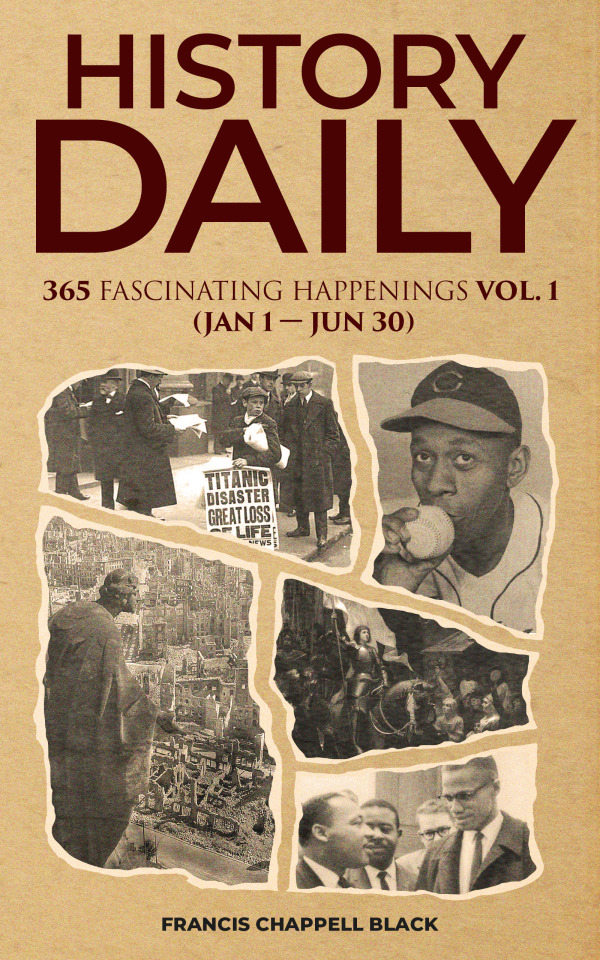
ON SALE NOW!!!
History Daily: 365 Fascinating Happenings Volume 1
In the United States:
History Daily: 365 Fascinating Happenings Volume 1: January – June: Chappell Black, Francis: 9780991855865: Amazon.com: Books
In Canada:
History Daily: 365 Fascinating Happenings Volume 1: January – June: Chappell Black, Francis: 9780991855865: Books – Amazon.ca
#history daily#1400s#War of the Roses#Henry Tudor#King Richard III#Battle of Bosworth Field#King Henry VII
0 notes